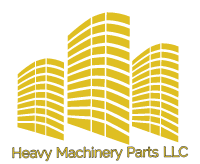When managing construction or industrial projects, choosing whether to rent or buy heavy machinery is a critical decision. Both options have unique benefits and potential challenges, so understanding key factors is essential to making the right choice. This guide explores everything you need to know to optimize your investment and ensure smooth operations.
Key Factors to Consider Before Deciding
- Duration of Use:
- Renting is often ideal for short-term or one-off projects.
- Buying makes sense if the equipment will be used extensively over the long term.
- Type of Equipment:
- Common machines like excavators are often easy to rent.
- Specialized machinery, like large cranes, may be harder to source for rental due to limited availability.
- Workload and Stress Levels:
- Rental equipment may not handle continuous, heavy workloads as effectively as new machinery.
- Investing in new equipment can reduce downtime and maintenance issues during intensive operations.
- Business Nature and Frequency of Use:
- For companies with consistent projects, owning equipment ensures availability and long-term cost efficiency.
- Firms with sporadic needs may benefit from renting to avoid storage and depreciation costs.
Don’t forget, we also offer a wide range of spare parts for heavy machinery, so feel free to inquire about any replacement needs you may have. Just click on contact us.
Advantages of Renting Heavy Machinery
- Lower Upfront Costs: Renting requires minimal initial investment, freeing up capital for other expenses.
- Flexibility: Easily switch to newer or different models as project requirements change.
- Reduced Maintenance Responsibilities: Maintenance and repairs are typically handled by the rental company.
- No Depreciation Worries: The asset’s value loss isn’t a concern when you don’t own the equipment.
Benefits of Buying Your Own Machinery
- Long-Term Savings: Frequent use offsets the high initial purchase cost.
- Unrestricted Availability: Owned equipment is always on hand, avoiding rental delays.
- Tailored Maintenance: New machinery, when maintained correctly, can endure intense workloads more effectively.
- Asset Value: Even after use, owned equipment can be resold to recover part of the investment.
Practical Scenarios: When to Rent and When to Buy
- Renting is better for:
- Projects requiring multiple machine types for short durations.
- Specialized equipment that would sit idle most of the time if purchased.
- Companies looking to test a specific model before committing to a purchase.
- Buying is better for:
- Long-term projects where consistent access to machinery is crucial.
- Companies undertaking intensive workloads that require robust, dependable equipment.
- Firms with regular projects and sufficient storage capabilities.
Deciding between renting and buying heavy machinery depends on several factors, including the duration and intensity of use, the type of equipment, and your business model. Carefully weighing these considerations ensures you maximize efficiency and minimize costs. Whether you rent or buy, understanding your unique needs is the key to a successful investment.
